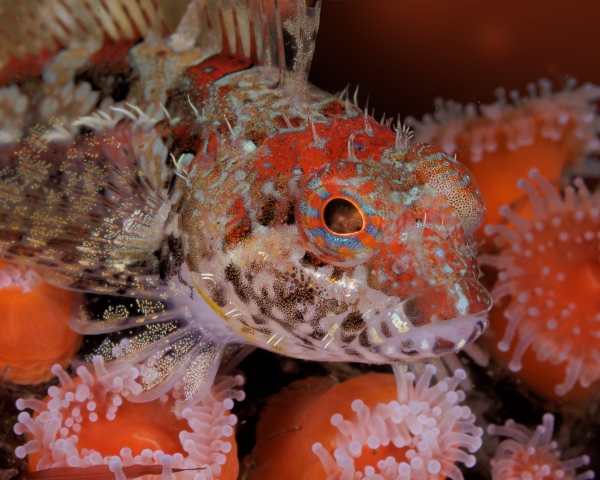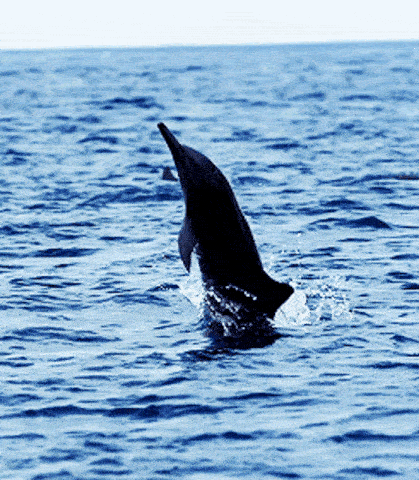|
|
Photo: The Coastal Zone Canada conference in Charlottetown, Prince Edward Island, opened with a performance that included Mi'kmaq song, dance, and drumming. Photo: Madison Stewart |
|
|
|
|
|
Hello Chris, First, we want to take a moment to thank you for boldly standing with us for nature over the last half year. It has been a wild ride, and not always an easy one. Know that there are many others who care about and work hard to protect nature in Canada. For instance, this email is sent to over 140,000 people! 💗 In challenging times, it can be hard to muster the motivation to keep going. But taking action for nature has never been more important and the CPAWS team is continuing its efforts to protect our beloved natural heritage across the country. Staff from the CPAWS National Ocean Program attended two ocean conferences this month: the Coastal Zone Canada conference in Charlottetown, Prince Edward Island, and the UN Ocean Conference in Nice, France. We’ve shared some highlights below, and stay tuned for the new blogs we will publish in the coming month. 🌊 June is also National Indigenous History Month, a month during which we honour Indigenous Peoples in Canada. We believe it’s every Canadian’s responsibility to educate themselves on Indigenous history and lived experiences, to support Indigenous rights and sovereignty, and to take actions towards reconciliation. We’ve shared some resources below that we encourage you to explore. 🪶 Never forget: our community’s voice is powerful. Let’s keep hope and stand ready, because there’s more work to be done to save nature. Nature needs you! 📢
|
|
|
|
|
The Federal Government and Parliament fast-tracked a new law — Bill C-5, the Build Canada Act — that aims to kick-start the economy with “nation-building projects.”🤔 But there’s a big problem. As it stands, this Bill opens the door to environmental harm, weakens Indigenous rights protections and gives sweeping powers to approve massive projects without enough oversight. 🦊 Bill C-5 has passed, but that doesn’t mean we should give up. With your voice, we can help make this legislation better.💪🏾 Send a letter to tell politicians that you want to see nature protected and Indigenous rights and titles upheld. Read our latest blog post to learn more.
|
|
|
 |
|
|
Ocean Week events in Manitoba made waves 🌊This month, CPAWS Manitoba brought well-deserved attention to the ocean. Hudson Bay may be called a ”bay,” but fun fact — it’s all ocean! 🌊 To celebrate Ocean Week, CPAWS-MB hosted a series of creative and educational events to connect Manitobans with their Arctic coast. At Ocean Soundscapes, guests experienced an immersive evening of ocean-inspired music by Rob Knaggs, whose cello compositions draw from his time in Churchill. The performance was paired with stunning visuals of Manitoba’s marine environment, alongside talks from marine conservation leaders. Guests also contributed video reflections on their relationship with water, building a powerful community art piece.🎶 Meanwhile, the Ocean Walk led participants through Winnipeg’s Exchange District, tracing the journey of water from southern Manitoba to Hudson Bay. Guided by CPAWS staff, the walk highlighted the vital connections between communities in the south and our Arctic coastline in the north, offering space for reflection and storytelling about the role water plays in our shared environment.🚶🏾 Keep up to date on conservation efforts in Manitoba by subscribing to CPAWS Manitoba’s newsletter and following them on Instagram, Facebook, YouTube, or X. 🐳 Photo: beluga whale (Delphinapterus leucas) by Tony.
|
|
|
Button
|
|
|
|
 |
|
|
We keep swimming together to protect nature. Stay part of the pod! Your voice and participation is so important. 🐬
|
|
|
|
|
Coast to Coast to Coast – Canada’s Nature Updates
|
|
|
|
|
|
June is National Indigenous History Month. At CPAWS, we honour Indigenous Peoples from coast to coast to coast and their leadership on protecting nature. Indigenous Peoples are stewards of their lands and waters, holding generations of knowledge that guide sustainable relationships with nature. Indigenous-led conservation is essential to preserve biodiversity and protect our natural heritage. We encourage everyone to deepen their understanding on Indigenous history and lived experience in Canada, and learn more about Indigenous-led conservation. We invite you to visit these sites to learn more: 🪸 Photo: Markus Thompson / Thalassia Environmental
|
|
|
Button
|
|
|
|
|
|
|
How do we balance the troubling matters going on in the world and our wellbeing? It’s a good question. From environmental crises to social injustice — it can feel overwhelming. It’s essential to take action and to take care of ourselves. When we feel grounded and well, we’re more able to show up for the world in a healthy, sustainable way. This resource from The Commons provides many ideas for maintaining a healthy wellbeing while working towards a healthier future. ❤️🩹 Photo: Jacob Lund
|
|
|
Button
|
|
|
|
|
|
|
The Ford government used its majority to ram Bill 5 through the legislature, without adequate time to meaningfully consider comments received through the Environmental Registry of Ontario. Our chapter, Wildlands League, together with many environmental partners fought back. They registered their dissent loudly in front of the legislature, online, in the media and in our communities. The fight is far from over. It’s just getting started. Read Wildland League’s statement here. 💪Image: Wildlands League
|
|
|
Button
|
|
|
|
|
|
|
When you think of British Columbia, do you imagine lush forests, rich with biodiversity? You may be surprised that the province doesn’t actually have a law that protects biodiversity. In this Op-Ed, authors Sarah Otto and Brynna Kagawa-Visentin discuss that as B.C. faces pressures to make short-term economic decisions, the province must remember that it is biodiversity that makes the region special. Tourism brought in $9.7 billion to the B.C. economy in 2023. The authors tell us that we must remember that healthy ecosystems, rich in life and within healthy connected landscapes, are the foundations of healthy communities and long-term security. They are not optional. 🐟Photo: Markus Thompson / Thalassia Environmental
|
|
|
Button
|
|
|
|
|
|
|
As summer draws us to the coast, the need for sustainable coastal management grows increasingly urgent. At the Coastal Zone Canada conference in Prince Edward Island, CPAWS staff joined diverse voices — First Nations, researchers, and governments — to share insights on co-governance, climate resilience, and ocean literacy. A powerful tapestry project was created as crocheted squares were woven into a salvaged gill net that once entangled a killer whale, highlighting the strength of local knowledge and community values. The blend of tradition, science, and collaboration at the conference was a hopeful reminder of what’s possible when we work together. 🌊Photo: Madison Stewart
|
|
|
Button
|
|
|
|
|
|
A Quick Shout-Out to a Partner
|
|
|
|
|
|
We are excited to announce our new partnership with Nature Investment Hub (NIH). Protecting nature requires a whole-of-society approach. NIH is seeking to stimulate a fivefold increase, equivalent to $20 billion, in public, philanthropic and private investment directed toward the conservation, restoration, and sustainable use of nature in Canada, with the goal of closing the current funding gap for nature. Now in partnership with NIH, CPAWS will be a part of important action-oriented discussions on nature finance instruments in the Canadian context, with the aim of shaping thought leadership and influencing policy. 🦭 Photo: Stan Stelmakhovich
|
|
|
Button
|
|
|
|
|
|
Peggy's Cove, Nova Scotia by NAN
|
|
|
|
|
What our Supporters are Saying
|
|
|
|
|
“I (actually “we”) have had the benefit of living at a time in which wild public lands in this country could almost be taken for granted. I have been able to enjoy those lands, and want my grandchildren to have that same opportunity. I am impressed with the approach taken by CPAWS towards achieving that goal. Maintaining credibility with the decision makers charged with responsibility for parks and wilderness areas requires an understanding how decisions are made and how best to influence those decision makers without alienating them. It seems to me that CPAWS strikes that balance, that is, it provides responsible and reasonable advocacy of the goals that are important to me. Keep up the good work!” - Geoffrey Barrow 🩵
|
|
|
|
|
Why do you support CPAWS? Please respond to this email to tell us your story and provide a photo of yourself in nature, and we’ll share it with our community through this newsletter. 📸
|
|
|
|
|
|
Whale, you’re the best in our minds! You are part of an ocean of change in Canada. Thank you for your dedication. ‘Sea’ you again in July. 🐠🐙🐋 Photo: Killer whales (Orcinus orca) by David Hutchison
|
|
|
Button
|
|
|
|
|
|
When nature thrives, so do we.💚
|
|
|
|
|
|